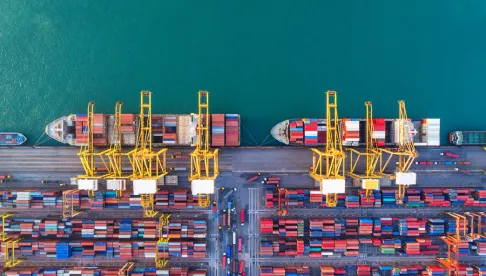On December 2, President Donald Trump announced Section 232 tariff exemptions previously granted to Argentina and Brazil would terminate “effective immediately.” In his December 2 tweet, President Trump criticized the two countries for “presiding over a massive devaluation of their currencies, which is not good for [U.S.] farmers.” The U.S. reached agreements with Brazil and Argentina in early 2018 that provided exemptions from the 25 percent tariffs on steel imports and 10 percent on aluminum imports to the United States.
Brazil and Argentina’s Responses
In response to President Trump’s announcement, Brazil’s Foreign Ministry stated it would “work to defend Brazil’s trade interests and secure commerce flow with the U.S.” Brazilian President Jair Bolsonaro also commented that he would discuss the tariffs with the Brazilian Minister of the Economy Paulo Guedes, as well as President Trump, in order to petition against the tariffs being re-instated.
In Argentina, Foreign Minister Jorge Faurie spoke with U.S. Commerce Secretary Wilbur Ross the day of the announcement, urging the tariffs not be imposed. Argentina’s Labor and Production Ministry also asked for clarification in order to better understand the extent of the action. Argentine Production and Labor Minister Dante Sica publicly expressed confusion over President Trump’s announcement, claiming that there were no signs of a change in the U.S.-Argentina trade relationship.
Potential Impact on Brazil and Argentina
As is often the case with recent Section 232 tariff actions, there is a risk that this development could weaken the two countries’ currencies further, hurting Brazilian and Argentine exports. Marco Polo de Mello Lopes, Executive President of Instituti Aco Brasil (IABr), a group that represents Brazilian steel mills, noted that the tariffs would impact current customers, adding tariffs bring uncertainty to the steel market. Many Brazilian manufacturers have also expressed concern that President Trump’s decision was inconsistent with the current U.S.-Brazil relationship.
Argentina’s government is equally worried that the tariffs will decrease private sector production levels, as Argentina struggles to become a viable competitor in the steel and aluminum industry. Argentina also faces increasing unemployment and poverty levels, exacerbating the economic pressure these tariffs will create. Attention will be on Argentine President-Elect Alberto Fernandez, who is expected to assume office on December 10, as he addresses the U.S.-Argentina bilateral relationship.
As Brazil and Argentina navigate the new U.S. tariffs and yet strive to continue to be major steel suppliers to the United States, it is possible that the two countries will seek to secure new trade deals with the United States, as other countries such as Japan and China have done as a result of U.S. trade actions.




 />i
/>i


